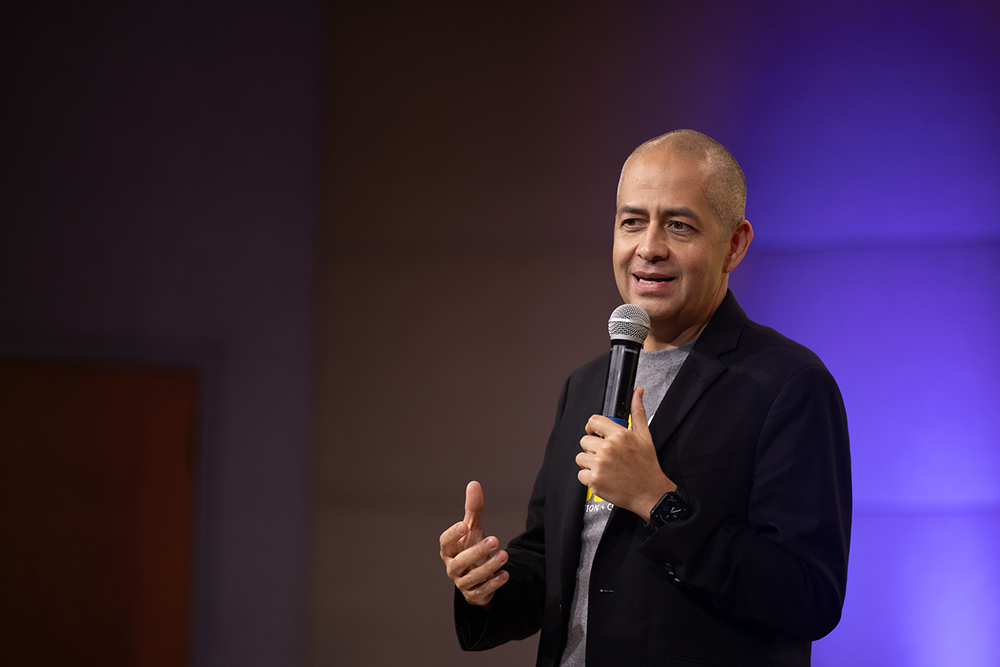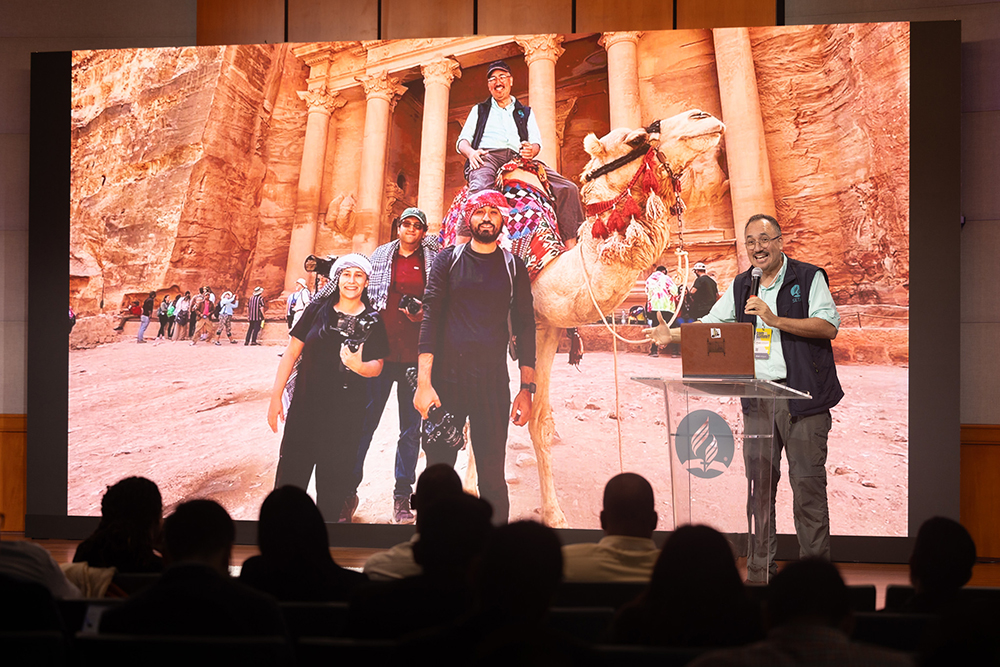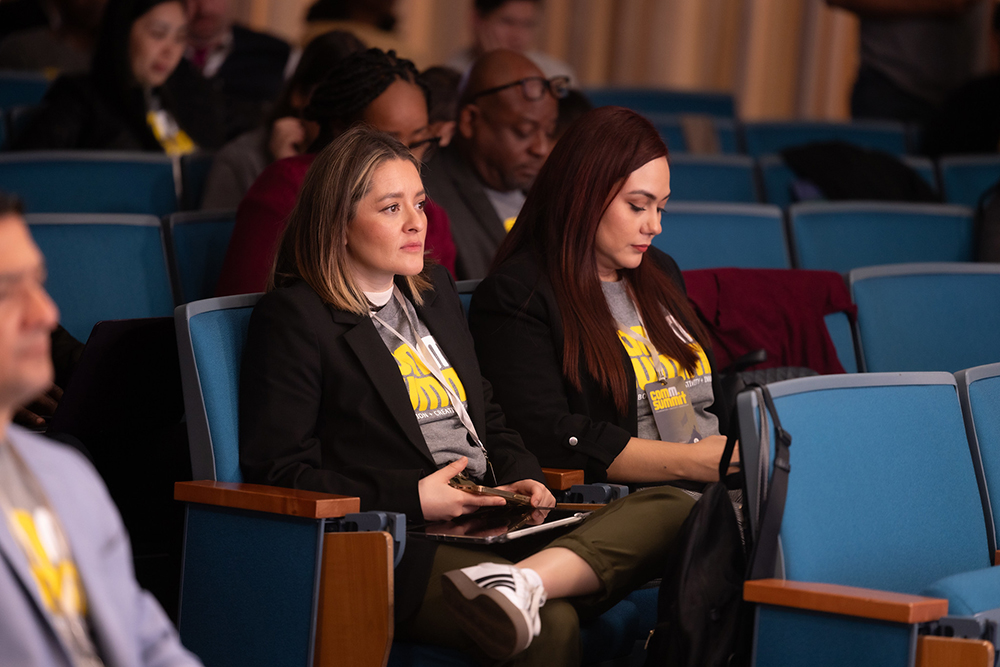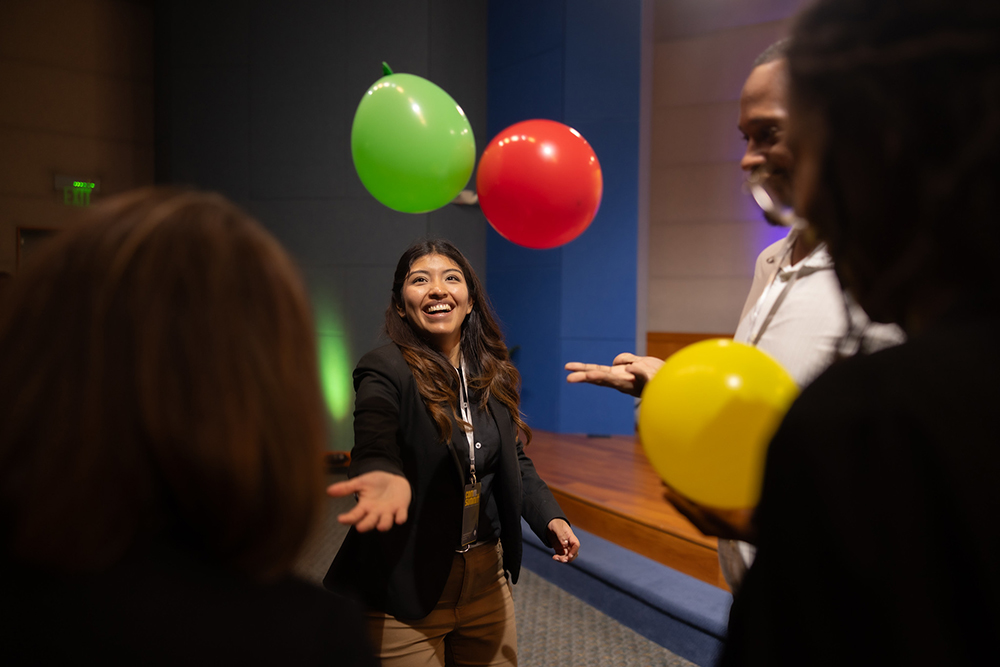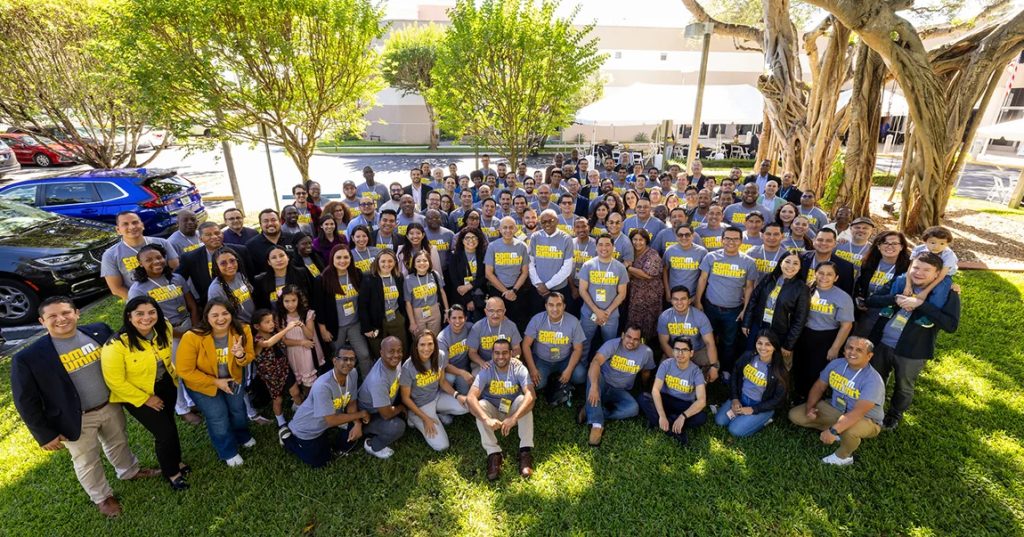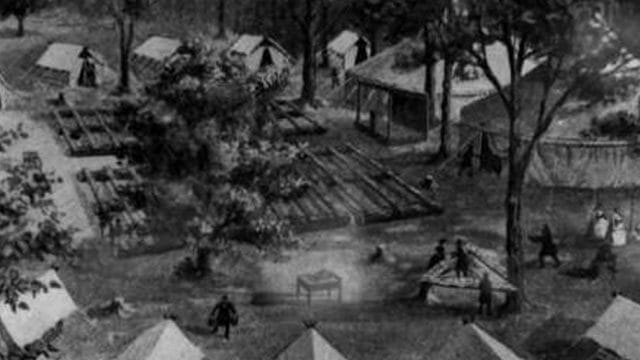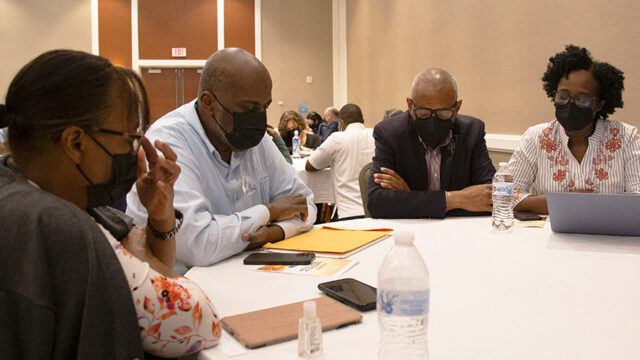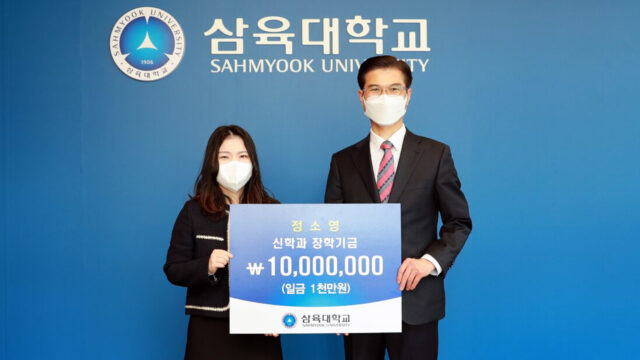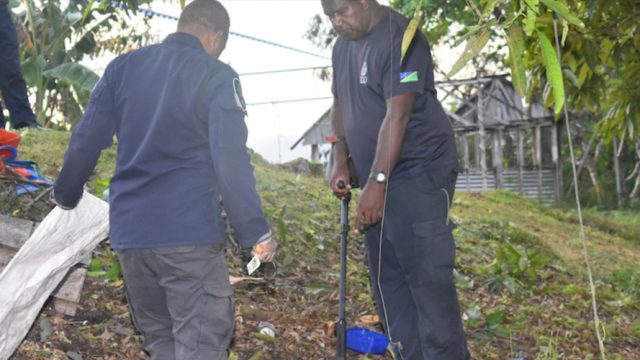Event calls Adventist communicators to use cinematography to bring others to Jesus.

“We need to fly back home inspired to make changes and striving for more creativity, innovation, and collaboration in the Seventh-day Adventist Church,” said Abel Márquez, communication director for the church in the Inter-American Division (IAD).
Márquez challenged more than 180 Adventist communicators and media producers during the territory wide Communication Summit or CommSummit, held November 7-8 in Miami, Florida, United States. “We did not want this event to be an advisory or workshop style event but a collection of inspirational and motivational talks that can empower you to do more for the mission of the church,” he said.
The event featured short talks, panel sessions, interactive activities, spiritual segments, prayer sessions, and more from communicators and media producers from the IAD’s 24 unions, fields, and media centers. CommSummit wrapped up with a showcase of new productions, upcoming film projects, and the need to maximize opportunities to share the gospel through creative means.
The Role of Filmmaking
One of the discussions near the conclusion of the summit explored how filmmaking can become an evangelistic platform to reach others with the gospel.
“Human beings have always turned to stories to find meaning to existence to life and to get to the emotions of people,” said Luis Rojas, cinematography director of the film on Hope Channel Inter-America Jornaleros. “As a church, we may have demonized emotions, but God gave us the capability to feel empathy for persons and cinema is like how music makes us feel, without asking permission. It is time to feel Jesus more through acts, actions, and show people who may have the wrong concept of who Jesus is.”
“Stories through films create emotional connections,” said Julio Muñoz, associate communication director of the North American Division and director of the Sonscreen Film Festival. Films allow that first step, that first connection through characters on the big screen that people may not be able to connect with in other ways, he added.
Hellen Hernández Castro, screenwriter, director of a new television series on Hope Channel Inter-America titled Conocidos, and owner of Creativo 115, agreed. “We have grown up hearing that it’s Hollywood’s fault for many things, for the moral decline, the way we look at love, that it’s at fault for the existing violence, but I want tell you that I think that Hollywood is not at fault at all. We are at fault because we have not reclaimed these spaces on the big screen,” she said.
Adrián Duré, media producer and filmmaker at Hope Media Europe in Germany suggested that filmmaking is similar to the church’s health department, which has the mission of providing healing before introducing the gospel message. “Perhaps in films we should come up with a slogan … to urgently define what we want in a church context,” he said.
Jorge Díaz, production assistant of Hope Channel Inter-America and director of UMedia at Montemorelos University, in Mexico, agreed that a definition should be studied. As moderator of the discussion session, Díaz asked how filmmakers could convince communication directors that cinematography can lead others to the gospel.
“My theory is that the problem is not in filmmaking but in what the church does with it,” Duré said. “The church could have 50 film productions at hand, but what will it do with them?”
Jonathan López, media producer in the Puerto Rican Union and producer of SPIN, a film carried on Hope Channel Inter-America, said the church must think outside the box. “The Adventist Church must find methods of distribution that can be effective, getting rid of sectarism and understanding that although we are not of this world, God has called us to be a light in the world,” he said. “Through films, we can make a great evangelistic impact.”
It has to do with collaboration, Muñoz said. “Everyone’s doing their own things, but we must find a way to collaborate because we can be stronger if we are united together.”
Hernández added that leaders can also tell if something is not authentic and see when someone wants to shine or there is no passion. “When you show your project, you must show it with passion … because not only leaders see it, but God sees it,” she said.
It should be about the stories, Díaz emphasized. “If you, as communication directors, are convinced and know the message … God will work to allow films to become a great evangelistic tool,” he said.
The New Conocidos Series
Earlier on November 8, Hernández, script writer and director of the television series Conocidos on Hope Channel Inter-America; Raquel Ramos, producer; and Melchor Ferreyra, IAD personal ministries director and executive producer, spoke on the experience and purpose of the series. “The series had a specific purpose to motivate church members to be involved in reaching others through small group ministries,” said Ferreyra.
The eight-episode series will also be used in small group ministries across the IAD territory, leaders said, along with a companion Bible study guide and a book that will instruct readers on how to reach others in large cities.
The actors cast for the series had to become familiar with Adventist songs and lifestyle before the 15 days that it took for filming the series, said Hernández. “We had to practically evangelize them, read the Faith of Jesus Bible studies so they could interpret Adventists on camera,” Hernández said. The eight episodes highlight the challenges and stories of the eight main characters in the series and show how they become more than acquainted, more like brothers and sisters in Jesus, she said. The first episode aired on Hope Channel Inter-America on November 17.
CommSummit’s last day also featured several short talks, presentations, and a panel discussion on how to best manage creative content, how to ensure funding for projects, and how to promote collaborative efforts to complete innovative projects.
As the IAD’s CommSummit event concluded, IAD executive secretary Leonard Johnson challenged attendees to make a difference when they return home. “Please do not bury the ‘deposits’ you have received, the investments made in you here,” he said. “We must transition from this place excited to go back to our areas and to … take to a higher level what it has been presented here. Please continue to enlighten us.”
The original version of this story was posted on the Inter-American Division news site.


